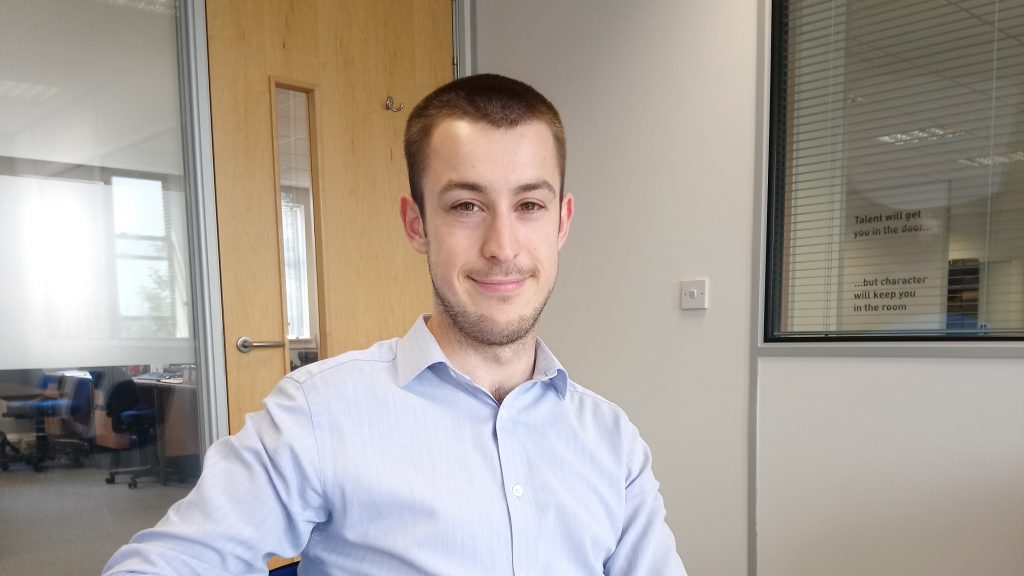There’s a scene that many people who work at awarding organisations are familiar with.
Imagine you’re at a party. You’re milling and mingling quite contentedly until someone corners you by the nuts with that age-old icebreaker, “What do you do?”
If you’re a normal person, you say, “I’m a dentist” or “I’m a teacher”. If you work for an awarding organisation, you clutch the stem of your martini glass a bit tighter as terms like MCQs and qualification levels and direct claims status rush through your head. They’re drawn in by your pride and enthusiasm, but it’s rare to encounter someone who understands everything you say.
Ever been there yourself? Or do you just want to know more about the FE sector and awarding organisations in particular?
Well, never fear! TQUK is here to demystify the sector and put down, in plain English, how we do what we do.
So, what do you do, anyway?
Essentially, awarding organisations sell trust.
Yes, trust.
It is up to awarding organisations to make judgements about someone’s ability to do something. The product of this judgement is a signifier of that ability, like a certificate. If a person has that certificate, you can trust that they are proficient in what it says they are.
For example, if someone has a TQUK Level 4 Diploma in Business Management (RQF), you can trust that that person knows things about management and can do a job involving managing people.
But how does a person get this qualification?
An awarding organisation’s bread and butter revolves around assessments. We help training providers conduct assessments, mark the resulting examinations and award certificates to successful candidates.
There’s loads of ways to assess someone’s learning in a particular area, and each assessment method needs to be appropriate for the person and subject in question.
But there are a few principles that apply across the board that guarantee the conditions for the best possible assessment. Sticking to these principles is how we establish trust in our certificates.
So, here are The 5 Principles That Guarantee the BEST Possible Conditions for an Assessment!
1. A great assessment must be Valid.
We use the word all the time. Just think of the last time you said, “That’s a valid point.” We all think we know what it means, but what’s the definition?
To describe something as valid means that it has force or weight behind it. The thing in question is sound, just and well-founded.
A valid assessment, then, is one that assesses the right things. For instance, if you’re being assessed on your ability to do maths, a valid assessment means you won’t be assessed on how well you read a question before getting to the maths. It will test your maths and only your maths.
If an assessment is valid, you can make a whole lot of inferences from the results, like whether or not someone can perform in a particular area after certification.
2. A great assessment must be Authentic.
This one’s very basic.
For an assessment to be authentic, it must assess things produced by the person, and within the right environment.
When determining authenticity, we always ask ourselves, “What are we assessing?”
So, an inauthentic assessment would be where you have the opportunity to give answers that aren’t your own. If you were taking an assessment testing your knowledge about metal decking, but you had the opportunity to copy someone else’s answers, that assessment would be inauthentic.
3. A great assessment must be Comparable.
All qualifications have a level. These levels correspond to tiers of difficulty.
A level 3 qualification is equivalent to A levels, a level 5 is equivalent to a diploma of higher education and a level 6 is equivalent to a degree with honours.
Each level comes with a certain level of difficulty. A comparable assessment will have a difficulty similar to other assessments at that level. So, an assessment for a level 3 qualification in adult care should not include an assessment activity at a level 4 difficulty.
Curious about how levels are determined? You can visit the government website for more information.
4. A great assessment must be Reliable.
Again, think about the word “reliable”.
If you were to describe a friend as reliable, it would mean that that friend is consistent. You can count on them acting in a certain way, no matter the situation.
It works the same way for an assessment.
For an assessment to be reliable, the outcomes of the assessment would be consistent if repeated. If an assessment was taken twice and a different assessor was used each time, but the results in both instances were more or less the same, that would be a reliable assessment.
5. A great assessment must be Sufficient.
Ending with an easy one.
A sufficient assessment has to be set up to ensure enough evidence is given to prove the learner’s abilities. Are there enough opportunities for this person to prove their skills?
Think of a driving test. It would be insufficient for you to just take your theory test. Someone would need to see that you can actually drive.
It’s the same with other assessments, too. Having sufficient evidence means we can paint the most complete picture of someone’s skills.
*
These principles guide us in every assessment we deliver.
If an assessment is valid, authentic, comparable, reliable and sufficient, it’s an assessment that TQUK knows will provide an accurate picture of the learner’s abilities.
TQUK is dedicated to making sure all the assessments we review allow for a learner’s true abilities to shine through. It is our mission to make sure learners and centres trust that our qualifications stand for what they say they do.
Of course, there is more to these principles than we described here. If you would like to learn more about assessments and assessing, or would be interested in becoming a TQUK Assessor, check out our TQUK Level 3 Award in Assessing Vocationally Related Achievement (RQF) and other assessing qualifications.
*
This was only Part 1! Join us next time for Part 2, where we’ll list some of the most common assessment methods and the pros and cons involved in each.
To keep up to date with the latest news from the further education sector, return to our blog or follow us on Twitter, Facebook, Instagram and LinkedIn.
See you out there!

















